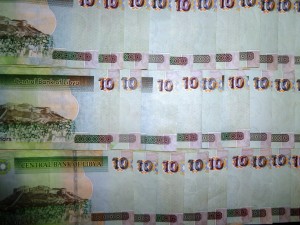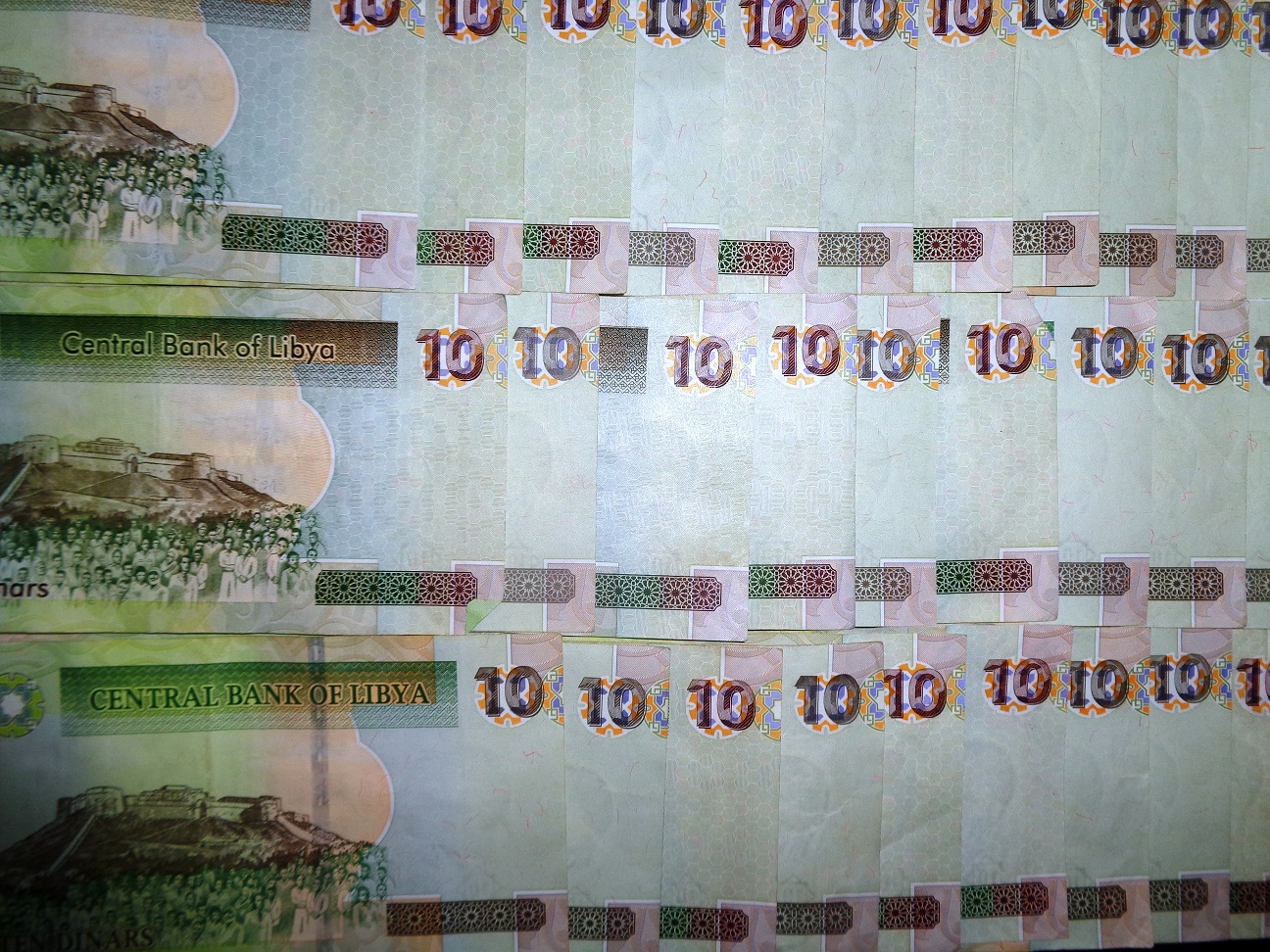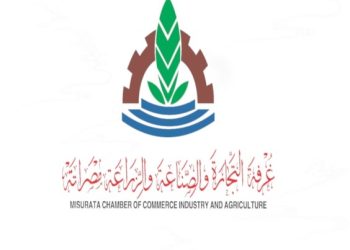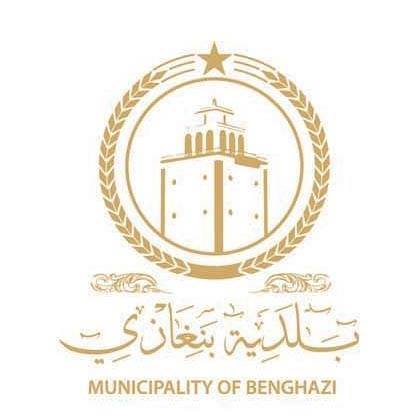By Sami Zaptia.

Tripoli, 6 July 2014:
Article 25 of the 2014 budget (Law no. (13) 2014) calls upon the Ministry of Economy, . . .[restrict]in coordination with other relevant departments, to work on limiting the import of non-essential goods into Libya.
The philosophy and catalyst for this attempt to limit non-essential and luxury imports can only be assumed to be the inflationary effect of the last two budgets as a result of the bloated salaries and subsidies sections as well as Libya’s growing deficit and depleting foreign currency reserves.
Both Libya’s disastrous subsidy system ( LD 11.93 bn / 20.9 percent of total budget ) and the runaway state wages section of the 2014 budget ( LD 23.27 bn/ 40.9 percent of total budget) have had inflationary effects on the economy.
| LD billions | 2014 budget LD | Percent of total |
| Chapter (1) -wages | 23.27 | 40.9 |
| Chapter (2) -expenses | 11.14 | 19.6 |
| Chapter (3) -Development | 9.0* | 15.8 |
| Chapter (4) -subsidies | 11.93 | 20.9 |
| Reserves & Contingencies | 1.6 | 2.8 |
| Total: | 56.95 | 100 |
Moreover, the damaging oil ports embargo initiated by the Federalists, and recently ended , which has reduced Libya’s oil exports to less than 300,000 bpd, has led to a growing public sector deficit. This deficit has had to be funded by the reserves of the Central Bank of Libya.
The 2014 budget has been trying to achieve spending cuts across the board, including the freezing of state sector employees’ wages, the reform of the subsidy system, and the freezing of the signing of any new contracts for state projects.
The Central Bank of Libya has also recently announced that it was reinforcing the existing laws which control foreign currency flows in and out of Libya.
Article 25 of the budget is brief and does not give any further details and does not indicate in what way this limitation of the import of luxury or non-essential goods will be implemented.
The most common methods used internationally to control or limit imports is the use of taxation and customs duties. By raising taxes/duties on certain products, governments are usually able to reduce imports or redirect consumer spending elsewhere.
Another tool available for government is the imposition of import licences for certain products. By controlling the number of import licences granted, a government can control the import of certain products. A government can totally prohibit the import of certain products by refusing to issue any import licences.
The control of foreign currency and the refusal of official transfers via banks of foreign currency as well as the control or refusal of the opening of bank letters of credits is another way in theory that the Libyan government could control imports.
These tools whilst on the face of it may look as if they may offer the Libyan state means of limiting imports, in reality, the present transitional condition of the state of Libya, mean that it will be very difficult to effectively use these instruments.
The Libyan state and its institutions are still very weak. It does not have full control on all its land and sea ports, with some regional ports showing allegiance to their region as opposed to acting as a revenue collection point for central government.
Corruption is very high due to the current weak administrative, management, police and legal system. It would be very difficult for the government to be able to fully enforce customs duty increases. Import licences would likely increase corruption as local customs duties would seize this as an opportunity to leverage some illicit payments and look away.
Imposing control at Libya’s land crossing points with Tunisia, Egypt as well as the distant border crossing points with Niger, Chad and Sudan, will prove an even bigger challenge. And if by some miracle the Libyan state is able to impose some sort of control over these official crossing points, it will certainly not be able to do so along its lengthy and porous borders. These borders and desert routes have been trespassed for decades if not centuries by smugglers.
A report released in February this year by the United States Institute of Peace (USIP) on illicit trade in Libya concluded that illicit trade is driving crime and security and political instability, with regional ramifications, in transitional Libya.
The best tools that the current weak Libyan government could use would be the suspension or limitation of the opening of bank letters of credit or the refusal to transfer foreign currency abroad.
However, letters of credit and official foreign currency transfers are already very limited. This has led to further blossoming of the foreign exchange black market. It is feared that a further squeeze by the state on the official conduits for the transfer of foreign currency abroad will only serve to further activate the burgeoning currency black market, with major ramification on inflation and the value of the Libyan dinar.
In reality, unless the Libyan state starts to impose security, control militias, rein in some of the widely spread weapons and strengthen its institutions, it is going to be very difficult for it to impose tight economic and fiscal policy.
An attempt to stifle official avenues will only catalyze unofficial and black market routes, leading to increased prices, inflationary effects and devaluation of the Libyan dinar, with resultant ramifications on purchasing powers and standards of Living. These in turn could lead to social agitation, instability and insecurity.
[/restrict]









